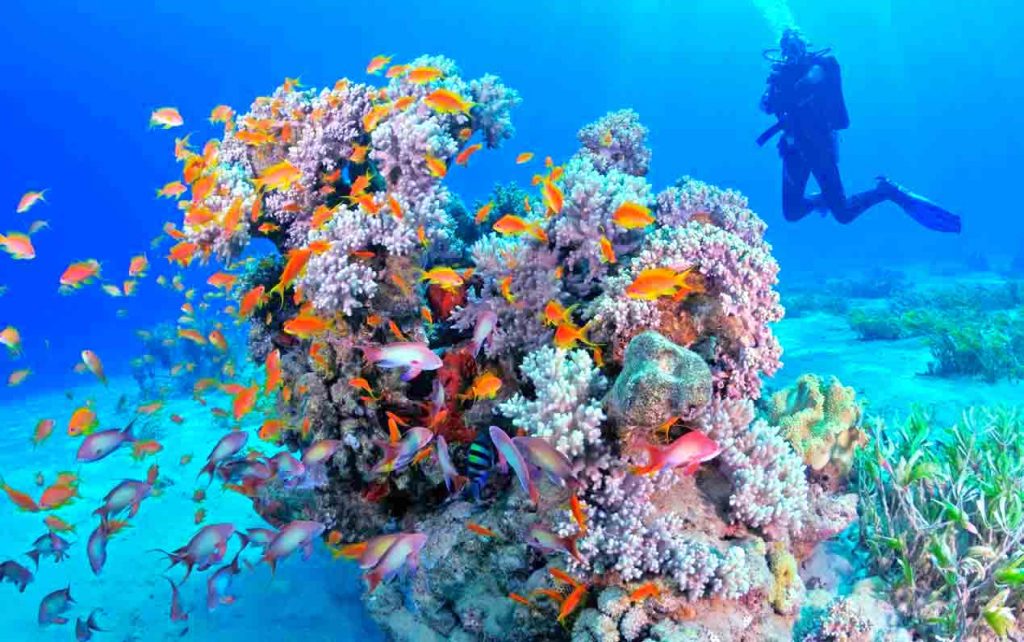Around the world, people celebrate their love of our oceans by bringing the beauty of coral reefs into their homes and offices. The flamboyant colors, ornate fish, and meditative vibe create a fantastic centerpiece announcing how much these ecosystems are loved. Unfortunately, aquarium hobbyists are largely in the dark about the true cost of bringing a bit of the ocean into their lives.
Two currently utilized fishing techniques employed to collect saltwater fish are killing coral reefs and the vast majority of the fish exposed. Blast Fishing involves the use of underwater explosive devices to disrupt the coral reef ecosystem. Cyanide Fishing involves the underwater spraying of a toxic cyanide solution onto the coral reef. Both practices cause deadly harm to the coral reef and fish to retrieve a small number of saltwater fish for sale.
The current practice is unsustainable with only 10% of the tropical fish surviving the transition from the ocean to the aquarium. Since it is impossible to breed these favorites in captivity, they are taken from natural reefs by methods that decimate the coral leaving untold bycatch and killing the overall habitat, so surviving fish lose their protection and food supply. These coral reefs can take years to regenerate, and with current ocean warming, many will never reappear. While many areas have outlawed these fishing techniques in favor of safer net fishing, there is a lack of effective enforcement.

To Whom it May Concern:
At the 2019 CITES meeting a document has was submitted and a commission convened to discuss the widespread and unsustainable destruction of marine ecosystems due to the saltwater aquarium trade.
The appointees are currently considering the viability and sustainability of segments of the aquarium industry. It is understood that many livelihoods are dependent upon the international sale of aquarium fish. It is further understood that current collection methods range from unhealthy to ecosystem eradication.
Current collection methods leave an insurmountable gap between “sustainable collection” and irreversible ecosystem eradication. There is tension between the current saltwater aquarium trade methods and:
These three revenue streams are not mutually inclusive. We must realize that the preservation of foundational habitat is critical to ocean futures and to the future livelihood of myriad communities dependent on the ocean for their livelihood and security.
Please consider allocating funds to cross-train collectors currently working in the aquarium industry to work within the naturalist, scuba and tourism industries where the reefs will bring a revenue stream week after week. Aquarium collection is currently mutually exclusive of other coastal industries and we must migrate away from this destructive practice.
Most saltwater aquarium owners, if they were aware that they were contributing to gravely damaging the ocean biomes that they so love, would not participate in this trade as currently practiced. We must raise awareness so the general public stops this senseless cycle and we must create a model for nations demonstrating that protecting coral reefs for the sustainable tourism industry is much smarter and economically viable than allowing unsustainable one-off cyanide and blast harvesting methods to continue for the aquarium industry.
Currently, CITIES has convened a commission to examine the saltwater aquarium trade. Please sign the petition below that will deliver a clear message that we need these unsustainable practices to stop and we need funds appropriated to retrain tropical fish collectors to become naturalist and SCUBA guides that will ensure their livelihoods and the livelihoods of future generations.
For additional information, please consult the official CITES document outlining the commission creation purpose and objectives. Please sign this petition and tell international decision-makers to re-examine these practices and the long-term effects they will have on coral ecosystems and coastal communities worldwide.

Sea Save Foundation is a 501 (c) 3 nonprofit organization EIN: 20-0403083. We received the GuideStar Platinum seal of approval in GuideStar’s Exchange program, meaning we have obtained their highest rating for transparency and legitimacy as an organization.



